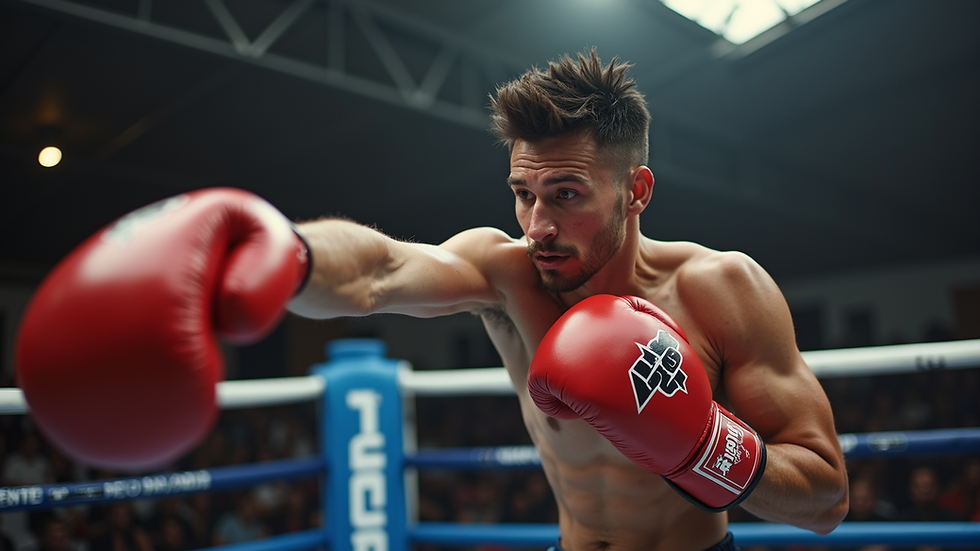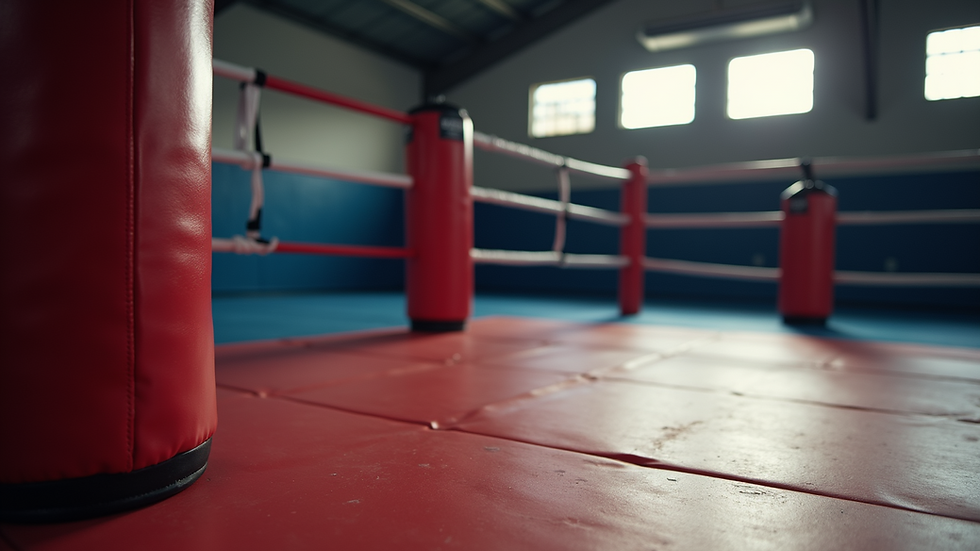Mind Over Impact: How Sport Psychologists Elevate Kickboxing Performance
- Dr Paul McCarthy

- Aug 1, 2025
- 4 min read
Kickboxing is more than just physical strength; it’s also a mental contest that tests a fighter’s willpower. The ability to maintain mental resilience can often determine the outcome of a match. As kickboxing evolves, the relevance of sport psychology is increasing. Sport psychologists play a crucial role in helping fighters realize their potential and develop a robust mindset that makes a difference both in training and during competitions.
This blog post will examine how sport psychologists enhance kickboxing performance. By concentrating on mental training techniques, psychological preparation for fighters, and nurturing key qualities like mental toughness and confidence, we will illustrate how psychology can be a game-changer.
The Role of Sport Psychologists in Kickboxing
Sport psychologists specialize in the mental aspects of athletic success. Their goal is to help athletes cultivate a winning mindset capable of facing the pressures of competitive environments. In kickboxing, where every move requires intense focus and precision, these professionals help fighters identify their mental blocks and manage competition-related stress effectively.
For example, a study showed that athletes who worked with sport psychologists experienced a 25% increase in self-confidence and a 30% improvement in their ability to cope with pressure. This demonstrates how beneficial mental preparation can be for kickboxers, enabling them to approach fights with clarity and confidence.
Mental Training Techniques for Kickboxers
Mental training for kickboxers includes various strategies aimed at boosting performance and building the right mindset. Visualization is one of the most effective methods. This technique involves mentally rehearsing fights, where athletes vividly picture their success, giving them a sense of preparedness when they enter the ring.
Breathing techniques also play a significant role. Controlled breathing can help fighters reduce anxiety and enhance mental clarity. For instance, research has shown that athletes who practice structured breathing exercises before competition can lower their heart rates by up to 15%, allowing for better focus and performance.
Kickboxing Mindset Coaching: Building Resilience
Developing a resilient fighter involves more than physical conditioning. Kickboxing mindset coaching aims to cultivate the psychological strength needed to face both opponents and inevitable obstacles. This coaching encourages a growth mindset, where challengers are viewed as chances for improvement rather than insurmountable challenges.
Resilience means being able to bounce back from setbacks, such as a loss or injury. With effective mindset coaching, fighters gain tools to refocus and keep pushing toward their goals. For example, one training program reported that 80% of participants improved their resilience scores significantly after working with a sport psychologist.
Psychological Preparation for Fighters: Pre-Fight Routines
A well-structured pre-fight routine is crucial for optimal performance. Fighters who engage in psychological preparation activities can enhance their focus, motivation, and calmness. Collaborating with sport psychologists, many athletes create personalized routines that include mental and emotional engagement before entering the ring.
These routines might combine warm-ups, visualization, and positive affirmations. For instance, a fighter might visualize a successful performance just before stepping into the ring, reinforcing their confidence in their abilities. Studies suggest that such mental preparation can reduce anxiety levels by up to 40%, leading to improved performance.
Mental Toughness in Kickboxing: The Game Changer
Mental toughness is essential for success in kickboxing. It encompasses traits like resilience and focus. Sport psychologists help athletes develop these qualities through strategies like cognitive reframing, enabling fighters to shift unhelpful thought patterns that impede performance.
For example, a fighter faced with a tough opponent may learn to view the situation as an opportunity to showcase their skills rather than as a daunting threat. Training programs have shown that fighters who develop mental toughness exhibit 50% better performance under pressure compared to those who do not engage in mental training.
Focus and Confidence in Combat Sports
In combat sports, maintaining focus and confidence is crucial for peak performance. Sport psychology emphasizes skills that enhance focus and uplift confidence. Techniques such as goal-setting, mindfulness exercises, and performance analysis can effectively direct a fighter’s mental energy.
By establishing clear, achievable goals, fighters remain motivated and concentrated. Incorporating mindfulness into training helps them become self-aware, allowing athletes to recognize when their focus drifts and to redirect it effectively. It has been observed that implementing these techniques leads to a 30% increase in performance levels during competitions.
Managing Pressure in Kickboxing: Tools for Success
Pressure is unavoidable in kickboxing. Whether it's the anxiety of an upcoming fight or the burden of expectations, how one manages this pressure is vital for success. Sport psychologists provide effective techniques for staying calm and collected when it matters the most.
Employing stress-relief tools such as progressive muscle relaxation and structured breathing can significantly alleviate anxious feelings. Additionally, engaging in pre-fight mental rehearsals can help fighters become accustomed to the pressure they will face, transforming potential stress into productive energy during their performances.
Final Thoughts on Kickboxing Performance
Integrating sport psychology into kickboxing is transforming how athletes prepare and perform. By focusing on mental training techniques, psychological preparation, and building mental toughness, sport psychologists are empowering fighters to unlock their full potential.
As the sport continues to grow, the partnership between fighters and sport psychologists will become increasingly essential. With a solid foundation in focus, resilience, and confidence, kickboxers will be better prepared to tackle the challenges they face in the ring and throughout their journeys as athletes.
Recognizing the importance of mental fortitude is just as crucial as physical training, making sport psychology a valuable resource in the relentless pursuit of excellence in kickboxing.










